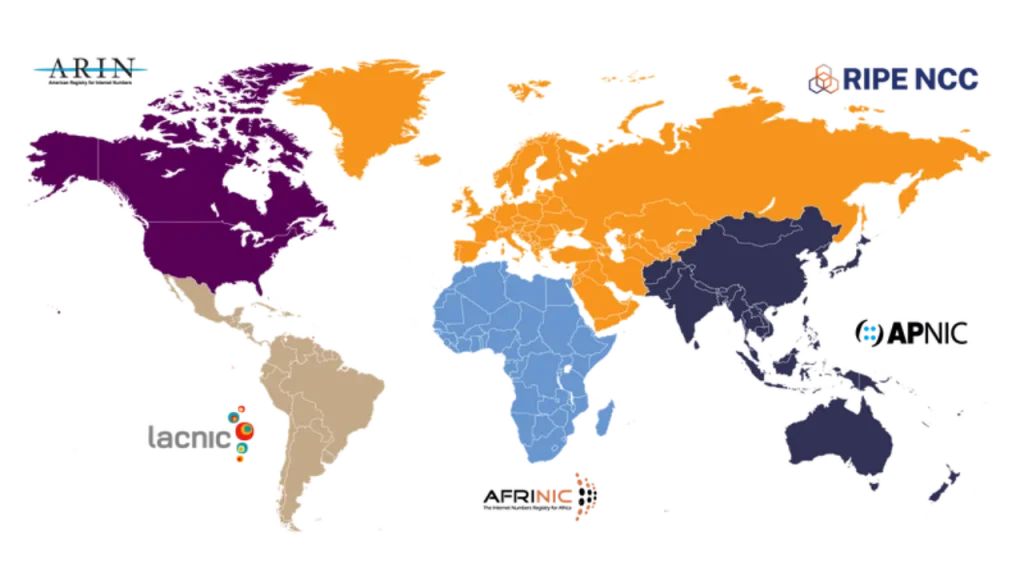- AFRINIC’s failure to meet global operational standards has raised alarms over legal authority and registry continuity.
- Stakeholders now call for a new neutral body to restore trust in African IP address governance.
Legal vacuum and registry chaos
When a Regional Internet Registry (RIR) like AFRINIC faces potential derecognition, the consequences are not symbolic—they are operational and deeply legal. AFRINIC, the body tasked with allocating IP resources in Africa, has been in a sustained state of collapse. With its board dissolved by court order, and elections annulled after a dispute over governance procedures, the registry is no longer functioning in line with global standards for IP resource stewardship. Its registry integrity, contractual authority, and operational legitimacy have all come under question.
Derecognition would confirm the de facto situation: AFRINIC no longer has the capacity to act as a reliable steward of Africa’s internet resources. Without legal standing, its ability to enforce IP address allocation contracts or resolve disputes evaporates. This places both resource holders and internet users across the continent in a precarious position.
Also read: Cloud Innovation supports ICANN’s move to derecognise AFRINIC, calls for successor to be immediately identified
Also read: Who is Eddy Kayihura? The scandalous past of AFRINIC’s former CEO
The break in continuity of services
AFRINIC’s operational dysfunction has already caused substantial disruptions. If derecognized, it would no longer be trusted to maintain an accurate WHOIS database, issue valid resource certificates, or provide reverse DNS services—all essential elements of a functioning internet ecosystem. Network operators who depend on AFRINIC for resource transfers, registration services, and administrative support may find their operations hamstrung.
Legal contracts referencing AFRINIC as an authority would enter a grey zone, potentially sparking conflicts over resource ownership. Organisations that require IP resource validation—such as banks, data centres, or governments—would be forced to seek ad hoc verification channels or interim arrangements. The result is fragmentation, delay, and uncertainty—directly undermining Africa’s digital development.
A governance system beyond repair
The heart of the crisis is governance, not policy. AFRINIC’s internal systems—meant to ensure democratic elections, transparent oversight, and functional member representation—have broken beyond repair. Despite attempts to hold elections, procedural errors, rule inconsistencies, and administrative interference have rendered fair outcomes impossible.
When elections are annulled not because of widespread fraud, but because the organisation fails to adhere to its own rules, the system itself becomes the problem. This has led stakeholders to conclude that the governance model can no longer be fixed. The situation is not a temporary lapse but a structural failure. Derecognition in this context is not a punishment, but a necessary step toward rebuilding trust and functionality.
Also read: Procedure or precedent? Rethinking ICP‑2 in AFRINIC’s aftermath
Also read: AFRINIC’s proxy vote scandal: What went wrong?
Calls for a new steward
Africa’s internet ecosystem cannot afford to drift in uncertainty. The region’s digital growth demands stable and competent IP address governance. Major stakeholders are now calling for the administration of IP allocations to be handed over to one of the existing RIRs to assume the functions AFRINIC can no longer perform. This is not merely administrative housekeeping—it is a fight to protect the continuity, legality, and credibility of Africa’s internet infrastructure.
Without a recognised steward, the very basis for cross-border connectivity, peering agreements, and global interconnection begins to erode. Those pushing for reform argue that only a full reset—a new, neutral registry with transparent governance—can restore the integrity of IP resource management in Africa.

